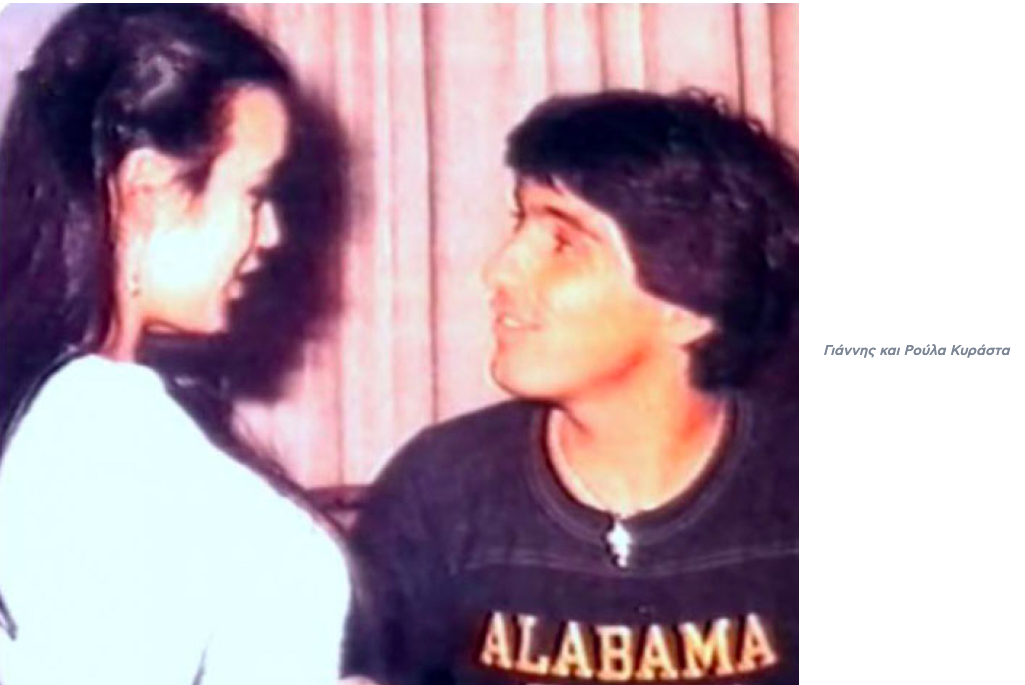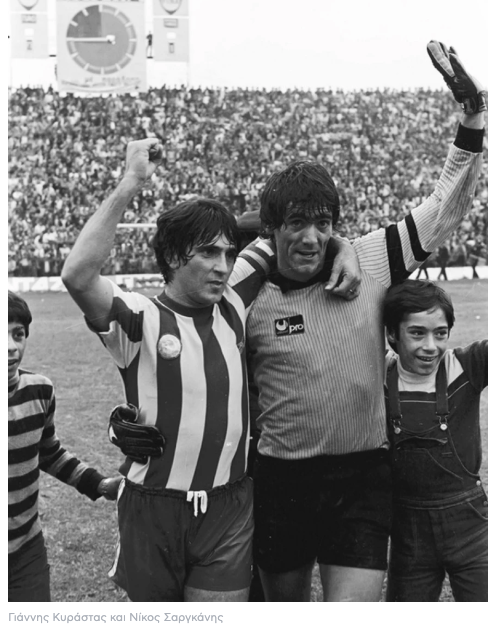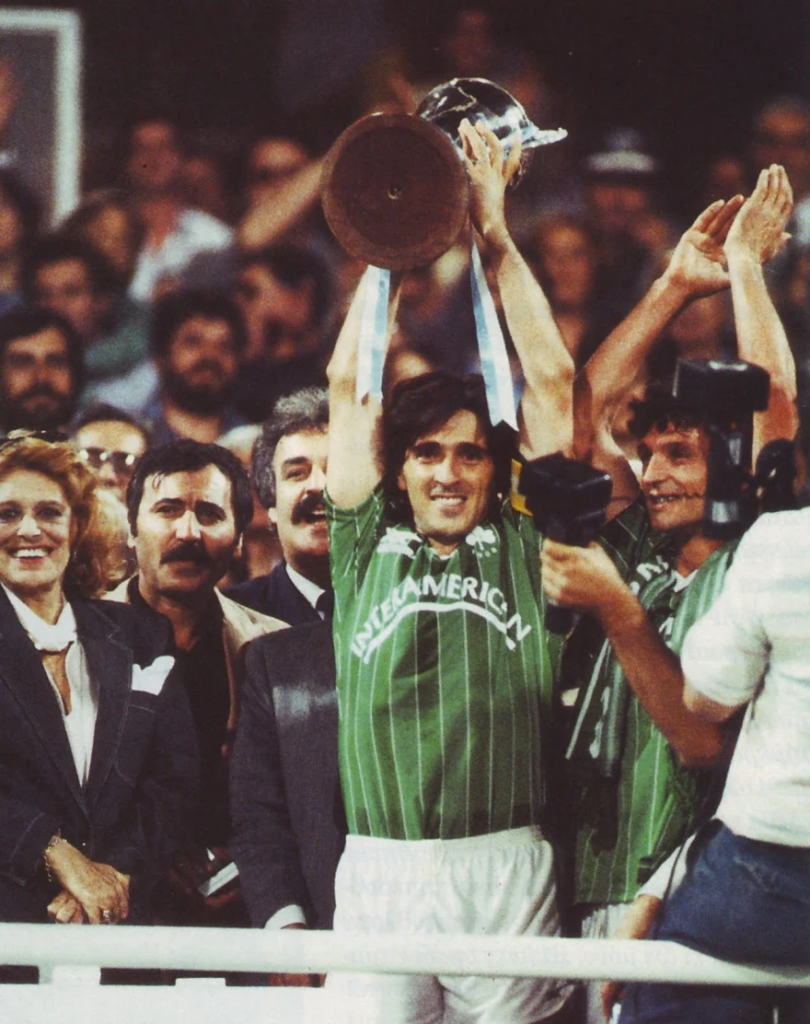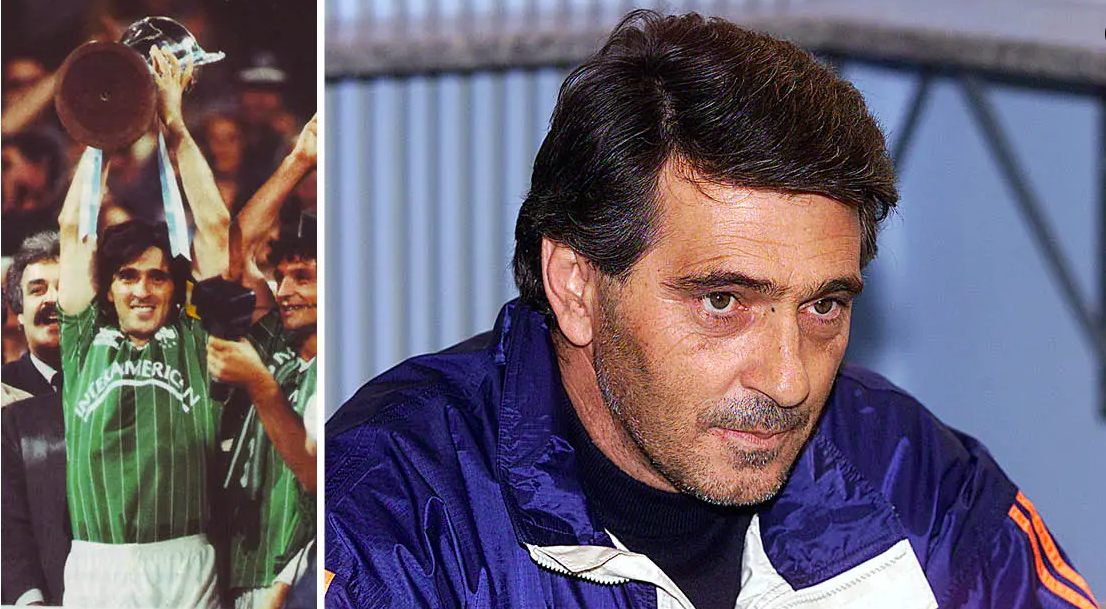On April 1st, people are used to telling lies, but the news that broke on April Fool’s Day in 2004 was anything but a joke. It was tragically real. Giannis Kyrastas, a man who left an indelible mark on Greek football both as a player and a coach, passed away at the age of just 51.

Despite bravely battling the rare Fournier’s disease (also known as Fournier’s gangrene), the illness prevented him from fulfilling his dreams, both for himself and for football. His passing shocked everyone. He left with the sorrow of knowing he still had so much more to offer the football world and, of course, his family.
Interview: Roula and Vera Kyrasta on Husband and Father Giannis
The Early Years in Football – The Beginning of a Legendary Career
Kyrastas took his first steps in football wearing the Olympiacos jersey, even though childhood friends say he had a soft spot for their eternal rival, Panathinaikos.
Olympiacos coach Alan Ashman was impressed when he saw him and immediately asked him to train with the first team.

At the time, Kyrastas worked as a house painter, earning him the nickname “Bogiatzis” (painter). He gradually shifted his focus from his father’s trade to football. Olympiacos coach Ilias Ifantis called him “Tsolithra” (slide) due to his playing style.
His official debut came on December 8, 1972, in a league match against Kavala. From that first game, he secured his spot as the team’s starting right-back.
The Olympiacos Years
Kyrastas became a key player for Olympiacos, wearing the red-and-white jersey for nearly nine years and even serving as captain due to his strong personality. He played 223 matches for Olympiacos, winning five league titles and three Greek Cups.
However, when his contract with Olympiacos ended, he received an enticing offer from Panathinaikos. Though he had always admired the Greens from childhood, he had grown deeply attached to Olympiacos, winning titles and earning a place in the national team.
During this era, Greek football saw high-profile transfers that would have once seemed impossible: Domazos joined AEK, Antoniadis and Gramos moved to Olympiacos, and Delikaris signed for Panathinaikos.
The Panathinaikos “Rebirth”
At Panathinaikos, Kyrastas experienced a career transformation. Initially playing as a right-back, he was repositioned as a sweeper (libero) by coach Jacek Gmoch, which revitalized his game.
He played for Panathinaikos for five years before retiring in December 1986, at 34 years old, after a 2-0 victory against Aris. He wanted to dedicate more time to his family.
With Panathinaikos, he won two league titles and three Greek Cups, but his greatest achievement was reaching the 1985 European Cup semi-finals against Liverpool.
The Coaching Career
He couldn’t stay away from football for long. Less than two years after retiring, he began his coaching career with Ethnikos Ellinorosson.

He later coached clubs like Messolonghi, Proodeftiki, Panionios, Ethnikos, Panargeiakos, and Paniliakos before receiving an offer from Giorgos Vardinogiannis in the summer of 1999 to coach Panathinaikos.
At the time, Panathinaikos had lost the league title to Olympiacos, and many considered the club’s decision to hire an inexperienced Kyrastas instead of a renowned foreign coach a major mistake. Greek sports media even called it “raising the white flag.”

However, he silenced his critics.
Under Kyrastas, Panathinaikos played spectacular football. Even though they didn’t win the league, they were voted the best team of the season, and Kyrastas was named Coach of the Year. Olympiacos won the 1999-2000 league with 92 points, while Panathinaikos finished second with 88.
However, internal conflicts within the club led to both Kyrastas and Vardinogiannis leaving Panathinaikos. Kyrastas spent a year coaching Iraklis, where he was given full control to build a competitive team.

The Return to Panathinaikos and the Unexpected Farewell
In the summer of 2001, Kyrastas returned to Panathinaikos, aiming to bring them back to the top. However, his second tenure was short-lived.
He resigned in December 2001 after a home loss to PAOK, stating that it was time to focus on his family and his passion for fishing.
Before stepping down, he had already laid the groundwork for the next generation of Panathinaikos stars, including Karagounis, Basinas, Goumas, Fyssas, Seitaridis, and Nikopolidis—players who would later form the backbone of Greece’s Euro 2004-winning squad.
Tragically, Giannis Kyrastas did not live to witness Greece’s historic triumph in Portugal.

Ask me anything
Explore related questions





